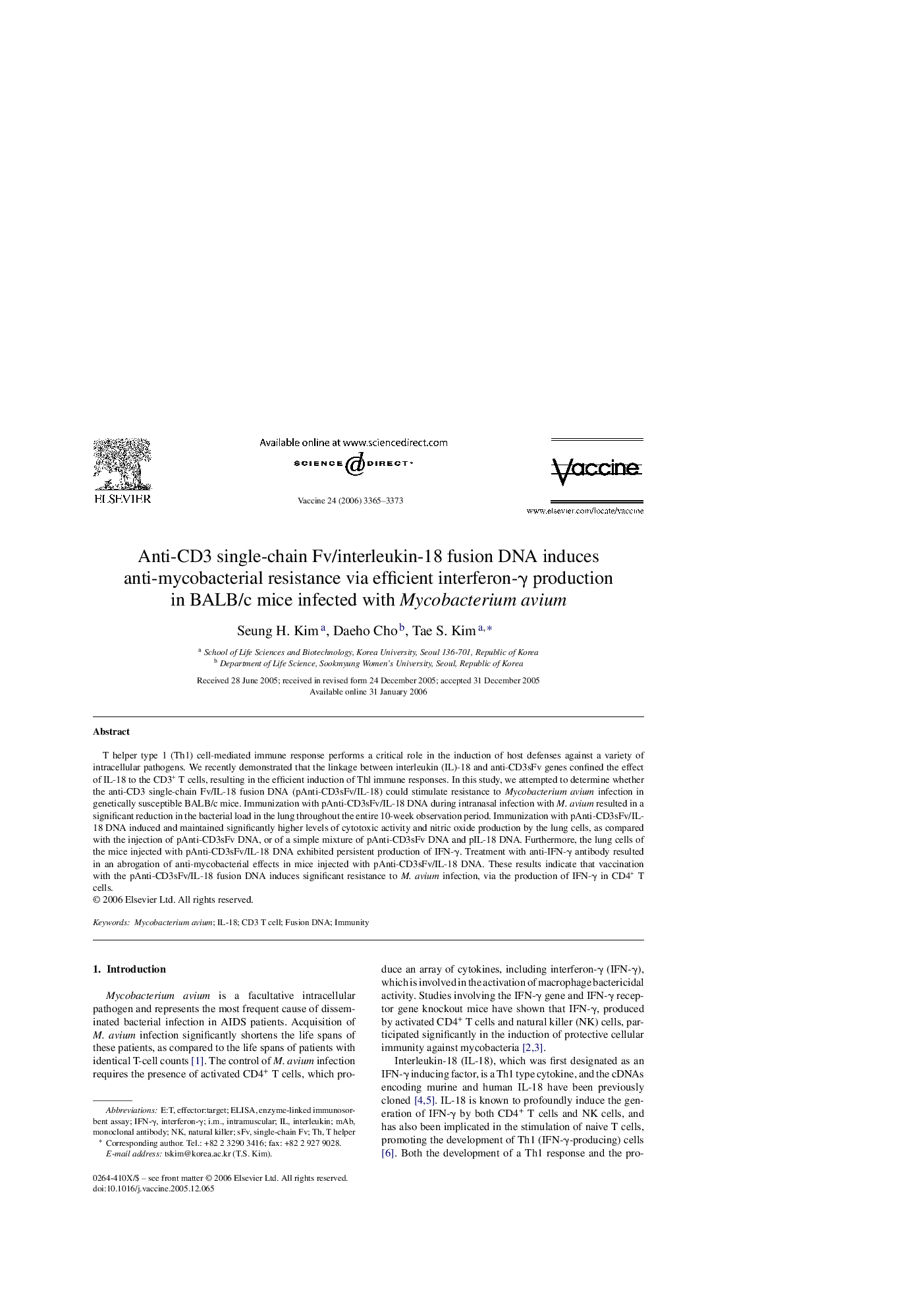| Article ID | Journal | Published Year | Pages | File Type |
|---|---|---|---|---|
| 2410288 | Vaccine | 2006 | 9 Pages |
T helper type 1 (Th1) cell-mediated immune response performs a critical role in the induction of host defenses against a variety of intracellular pathogens. We recently demonstrated that the linkage between interleukin (IL)-18 and anti-CD3sFv genes confined the effect of IL-18 to the CD3+ T cells, resulting in the efficient induction of Thl immune responses. In this study, we attempted to determine whether the anti-CD3 single-chain Fv/IL-18 fusion DNA (pAnti-CD3sFv/IL-18) could stimulate resistance to Mycobacterium avium infection in genetically susceptible BALB/c mice. Immunization with pAnti-CD3sFv/IL-18 DNA during intranasal infection with M. avium resulted in a significant reduction in the bacterial load in the lung throughout the entire 10-week observation period. Immunization with pAnti-CD3sFv/IL-18 DNA induced and maintained significantly higher levels of cytotoxic activity and nitric oxide production by the lung cells, as compared with the injection of pAnti-CD3sFv DNA, or of a simple mixture of pAnti-CD3sFv DNA and pIL-18 DNA. Furthermore, the lung cells of the mice injected with pAnti-CD3sFv/IL-18 DNA exhibited persistent production of IFN-γ. Treatment with anti-IFN-γ antibody resulted in an abrogation of anti-mycobacterial effects in mice injected with pAnti-CD3sFv/IL-18 DNA. These results indicate that vaccination with the pAnti-CD3sFv/IL-18 fusion DNA induces significant resistance to M. avium infection, via the production of IFN-γ in CD4+ T cells.
